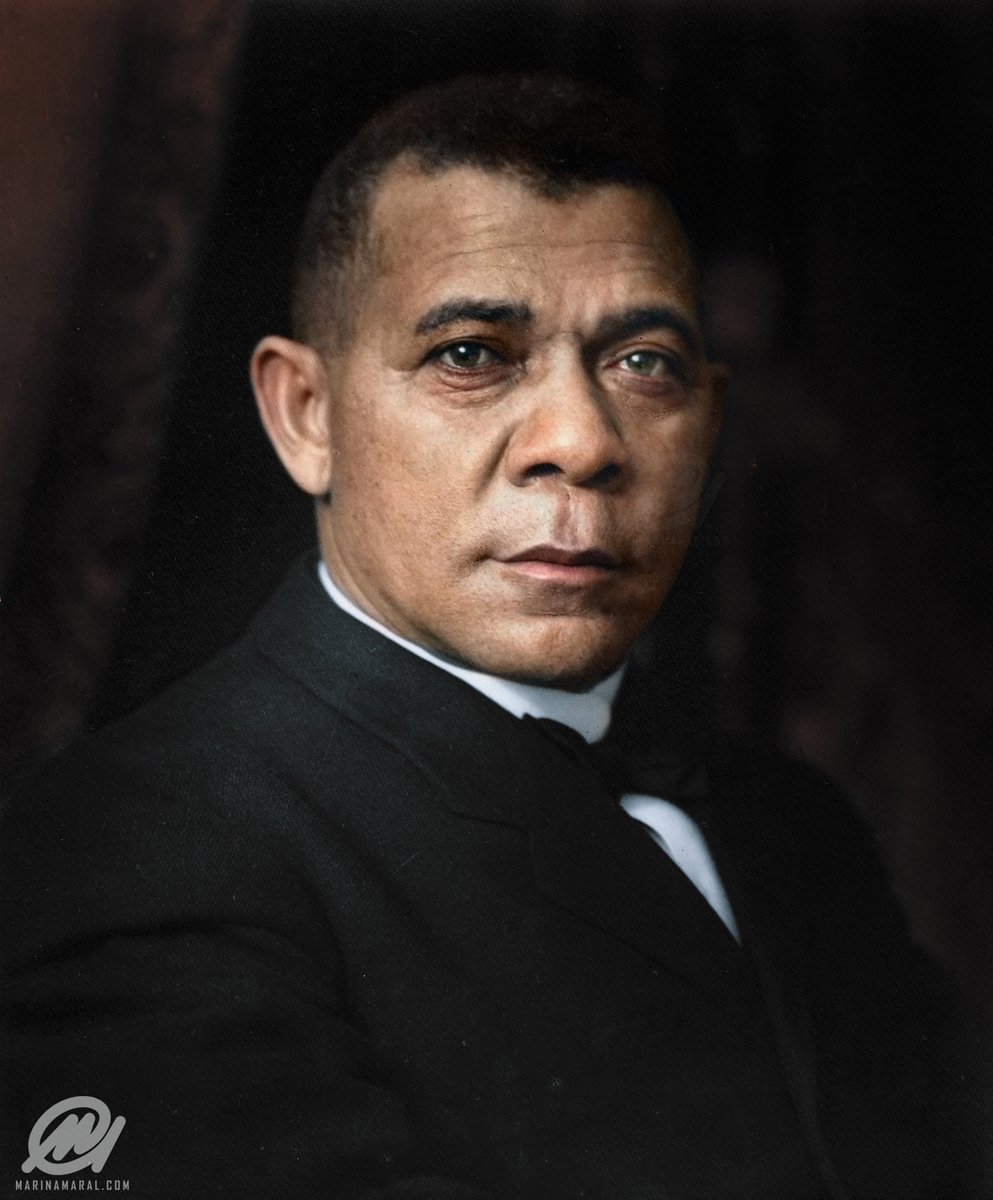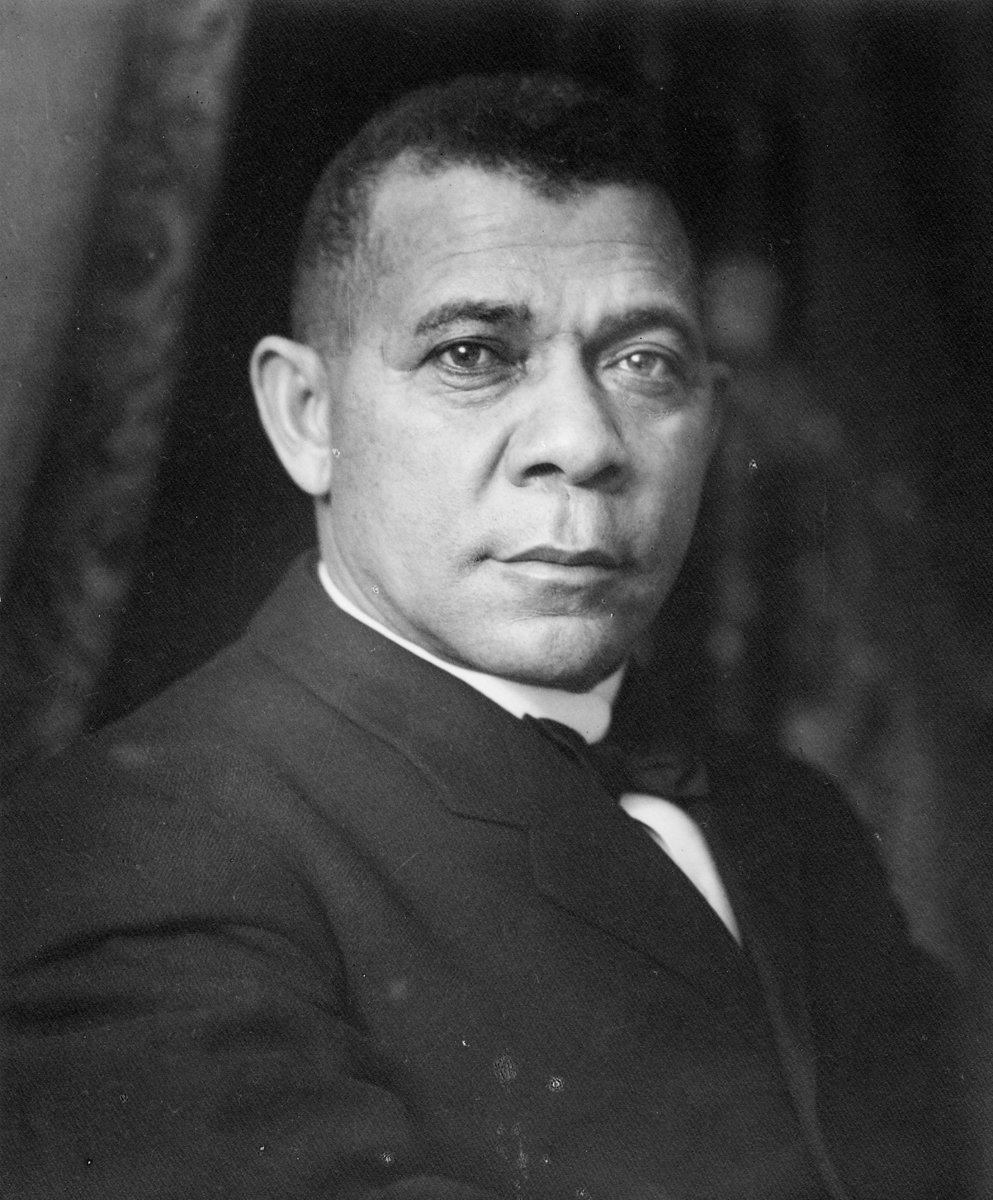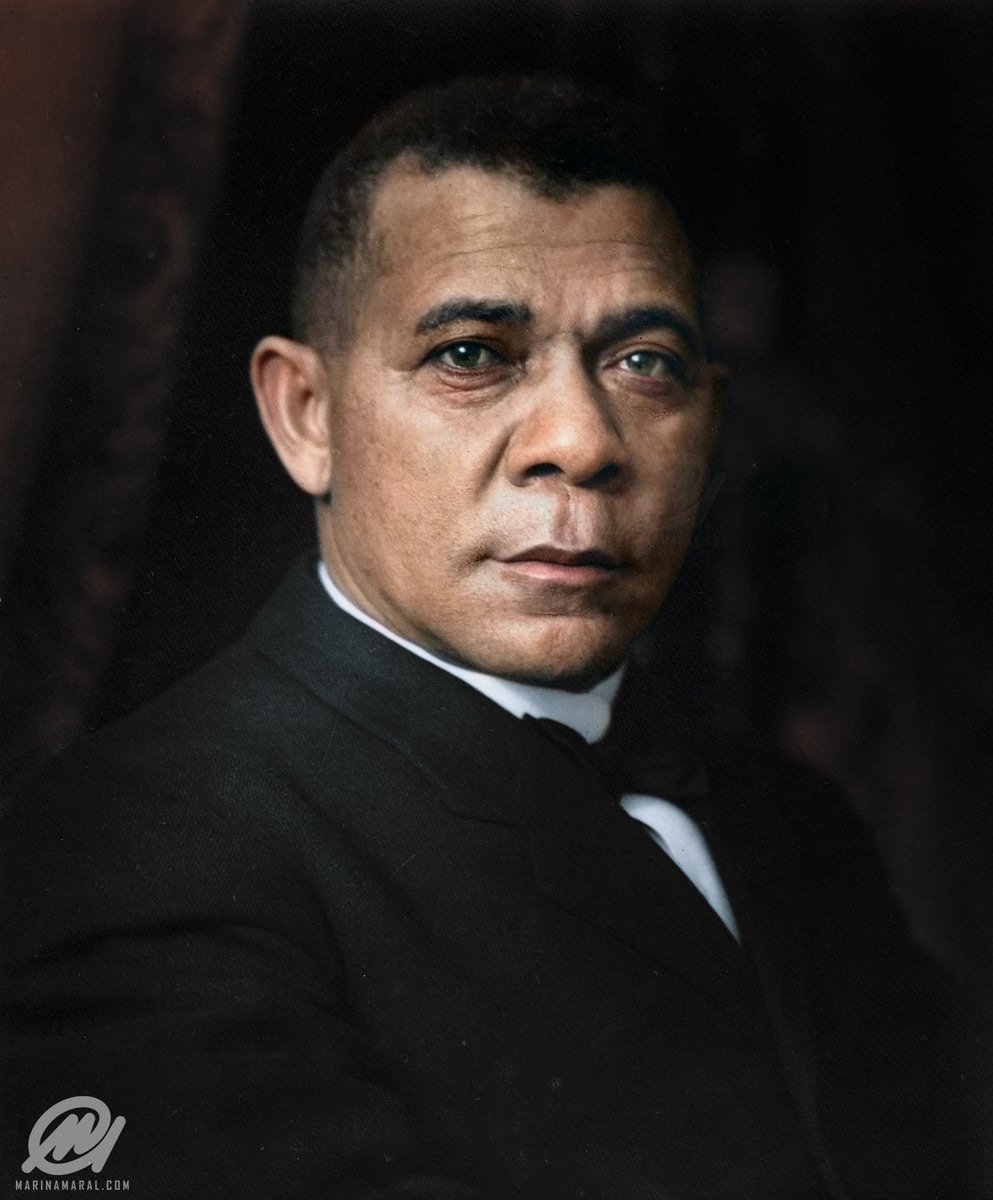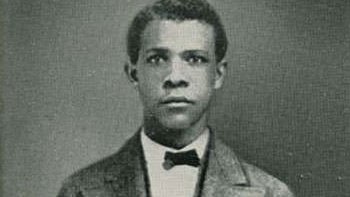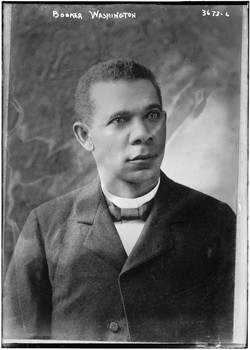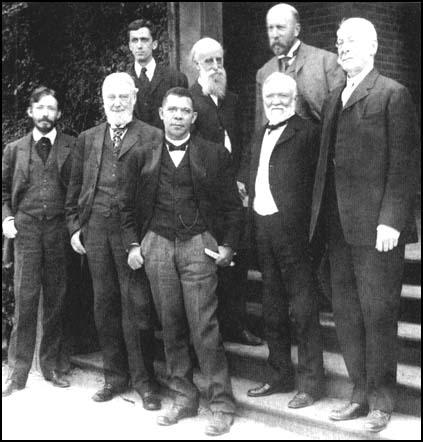Born into slavery, Booker T. Washington put himself through school and became a teacher after the Civil War.
In 1881, he founded the Tuskegee University. At his death, it had more than 100 buildings, 1,500 students, a 200-member faculty teaching 38 trades and professions.
In 1881, he founded the Tuskegee University. At his death, it had more than 100 buildings, 1,500 students, a 200-member faculty teaching 38 trades and professions.
Booker& #39;s mother, Jane, worked as a cook for plantation owner James Burroughs. His father was an unknown white man, most likely from a nearby plantation. Booker and his mother lived in a one-room log cabin with a large fireplace, which also served as the plantation’s kitchen.
At an early age, Booker went to work carrying sacks of grain to the plantation’s mill. Toting 100-pound sacks was hard work for a small boy, and he was beaten on occasion for not performing his duties satisfactorily.
After the Civil War, Booker and his mother moved to Malden, West Virginia, where she married freedman Washington Ferguson.
Booker& #39;s mother noticed his interest in learning and got him a book from which he learned the alphabet and how to read and write basic words.
Booker& #39;s mother noticed his interest in learning and got him a book from which he learned the alphabet and how to read and write basic words.
Because he was still working, he got up nearly every morning at 4 a.m. to practice and study. At about this time, Booker took the first name of his stepfather as his last name, Washington.
In 1866, Booker T. Washington got a job as a houseboy for Viola Ruffner, the wife of coal mine owner Lewis Ruffner.
Over the two years he worked for her, she understood his desire for an education and allowed him to go to school for an hour a day during the winter months.
Over the two years he worked for her, she understood his desire for an education and allowed him to go to school for an hour a day during the winter months.
In 1872, Washington left home and walked 500 miles to Hampton Normal Agricultural Institute in Virginia. The school& #39;s founder and headmaster, General Samuel C. Armstrong, soon offered him a scholarship.
Armstrong had been a commander of a Union African American regiment during the Civil War and was a strong supporter of providing newly freed slaves with a practical education. He became Washington& #39;s mentor.
Booker T. Washington graduated from Hampton in 1875 with high marks. For a time, he taught at his old grade school in Malden, Virginia, and attended Wayland Seminary in Washington, D.C.
In 1881, the Alabama legislature approved $2,000 for a "colored" school, the Tuskegee Normal and Industrial Institute (now known as Tuskegee University).
General Armstrong was asked to recommend a white man to run the school but instead recommended Washington.
General Armstrong was asked to recommend a white man to run the school but instead recommended Washington.
Read more https://www.biography.com/activist/booker-t-washington">https://www.biography.com/activist/...

 Read on Twitter
Read on Twitter